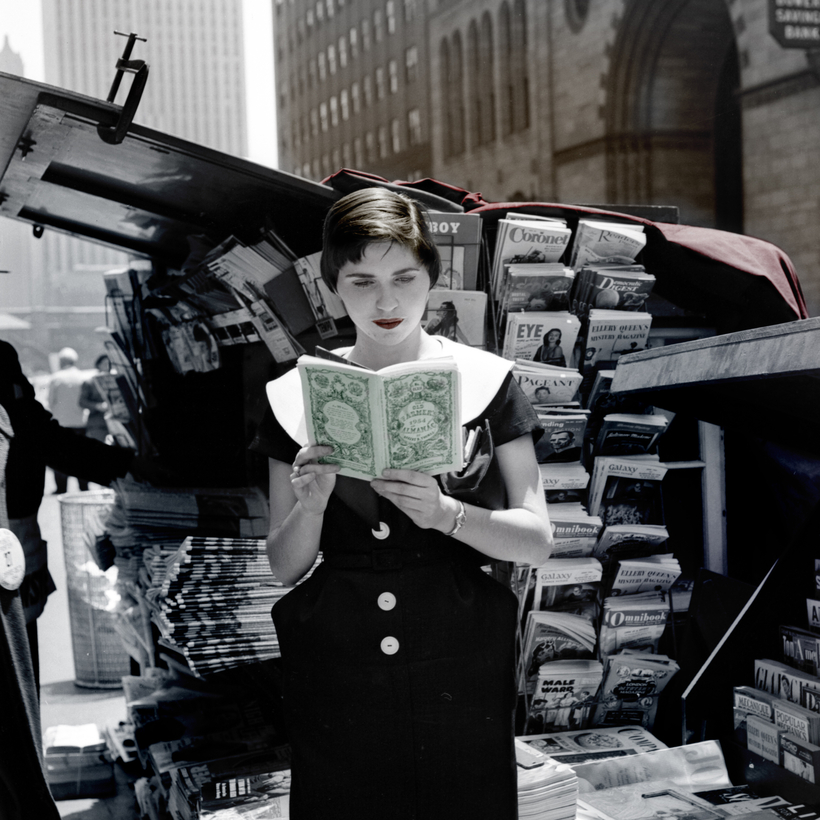With a snappy title and an earnest heart, Americanon, by journalist Jess McHugh, looks at 13 “American bibles,” influential books spanning American history “that ostensibly taught readers one subject, all the while instructing them about their role in society.”
Eschewing fiction, whose Hucks and Uncle Toms and March sisters might face conflicts all too obviously plucked from the tapestry of American history, the canny and erudite McHugh selects plotless but far better-selling instructional volumes—Webster’s Dictionary, for goodness sake! McGuffey Readers!—and shows how these books reveal the inner objectives of striving Americans while at the same time helping their achievement.
Consider the Old Farmer’s Almanac, that hit from 1792 that still sells three million copies a year. Along with bits of wit and wisdom, the Old Farmer’s Almanac is a proto-Google packed with data about rising tides, setting suns, and hatching insects, just the sort of information that any self-sufficient landsman would need to prosper in a new American nation.
The Old Farmer’s Almanac didn’t create the farmer, but it crystallized an image of an independent citizen who has minimal use for government. That ideal was embraced equally by New England Yankees and Virginia cavaliers, and has over time thrived, mutated, and absorbed Wyoming cowboys, Plano tanning-bed salesmen, and numerous others, such that two centuries later, it still colors the politics of a culturally diverse global superpower.
That’s one example. McHugh adroitly reveals how the DNA of each of these books can still be detected in an America that has in many ways evolved.
How the U’s Were Lost
We see how the credo of female domesticity extolled by Catharine Beecher in The American Woman’s Home has been diminished but not eliminated despite the pounding of several waves of feminism.
We see how Noah Webster’s dictionary codified a vocabulary for a new polyglot nation, and how his religiosity, which permeated the definitions that appeared in the first editions, still pops up in the peculiarly American tendency to invoke God in our political addresses.
And we see in Benjamin Franklin’s autobiography how his unpromising beginning was overwhelmed by his hard work, enterprise, and, most crucially, a willingness to fake it until he did make it, suggesting that, in America, anyone can grow up to be a successful publisher, scientist, aphorist, statesman, or all of the above. So mythic is this lesson that even the paternally subsidized and frequently rescued Donald Trump views himself as a self-made man.
Among the pleasures of this book is getting to know the people behind these brand names. All know of Franklin’s greatness; what’s amazing is that he wrote his autobiography during a career lull that preceded his indispensable nation-building. Webster was no mild-mannered lexicographer but an angry, nationalistic, Sean Hannity–ish zealot, so determined to construct an American language independent from English that he struck the u’s from words such as “colour” and “honour” (although his effort to re-spell “women” as “wimmin” did not catch on).
Emily Post, author of Emily Post’s Etiquette, was a Gilded Age socialite whose bounder of a husband abandoned her. Supporting herself with a fragile literary career, she launched an etiquette empire that eased the anxieties of arriving immigrants, the nouveau riche, the ex–country mice, and assorted other Gatsbys who were navigating the social turbulence of the American Century.
Dale Carnegie, author of How to Win Friends and Influence People, was an awkward country boy who discovered that, like good manners, self-confidence and an ability to speak in public would help anyone succeed in any setting. (Defining the limits of a smile and shoeshine would have to wait for Arthur Miller.)
Time is McHugh’s best ally in her venture: the older the books on her list, the more powerful seem her insights. She is not as persuasive about the canonical value of the more recent works, like Dr. David Reuben’s Everything You Always Wanted to Know About Sex* but Were Afraid to Ask, or best-selling self-help books by Louise Hay (You Can Heal Your Life) or Stephen Covey (The 7 Habits of Highly Effective People). Their 70s- and 80s-era obsessions with achievement seem staler and less relevant right now than Webster’s or McGuffey’s determination to unify a nation with a common foundation, or Post’s or Carnegie’s desire to attach success to ingratiation instead of polarization.
Of course, modern books might be at a disadvantage. McHugh selected volumes that penetrated the culture. One of her criteria was sales. Today, books penetrate the culture along with other media more powerful and farther reaching. When a scholar updates Americanon in 2121, we shouldn’t be surprised to see on the list episodes of Sesame Street or The Oprah Winfrey Show, or the best of the Marvel Comics universe.
Jamie Malanowski is a New York–based writer


